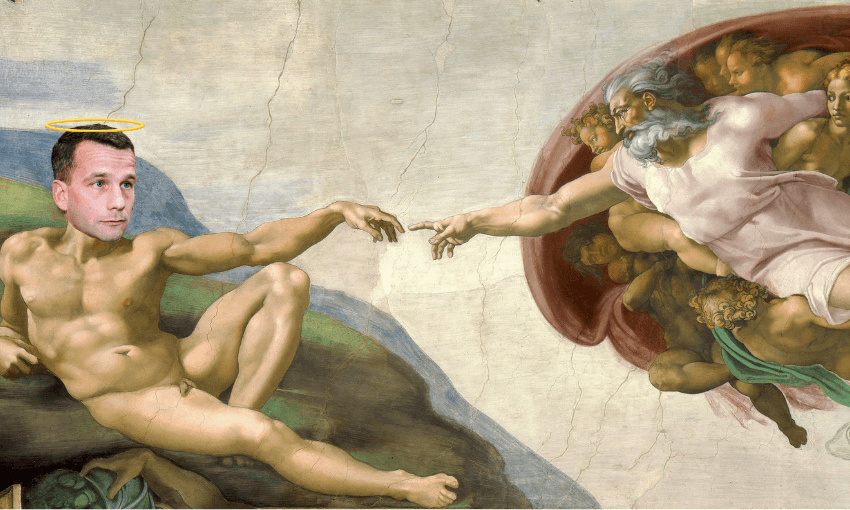The Christian church has had quite a few dust-ups with itself over the last 20 centuries. This week, the Act Party brought it together.
Since Jesus prayed that his followers may all be one (John 17:20-21), Christians have barely stopped fighting. Yes, they’ve occasionally broken off to slaughter people in the Middle East or oppose equal rights for people whose lifestyle wouldn’t fit in a 1950s ad for laundry detergent. They’ve blown up abortion clinics and helped elect a philandering alleged sexual predator and fraudster to the US presidency to restore morality. They’ve also performed many good works. But they always come back to their first passion: schisming over minor theological differences.
The Marconian schism happened in AD150 over whether the deity of the Old Testament was truly the Christian God. Since then things have become more petty. There are separate Christian denominations for people who believe you have to go all the way under the water when you get baptised and those who think church should be on a Saturday not a Sunday.
As it turns out, churches simply needed David Seymour to bring them together. On Monday, 440 local Christian leaders put their names to an open letter opposing Act’s Treaty Principles Bill. Signatories include prominent leaders from the Catholic and Anglican churches, who you might remember from several centuries of burning, beheading and exploding each other across Ireland, the UK, and Europe. They were joined by leaders from the Methodist, Presbyterian and Baptist denominations, several officers from the Salvation Army, and a host of theologians including Dr Alistair Reese, who delivered the homily at this year’s Waitangi dawn service.
This is one of the more notable displays of Christian unity in New Zealand since pastors banded together with Simon Barnett in 2006 to urge parliament to let them continue smacking their children. They may be willing to cast aside the Bible’s numerous calls for unity and split the church asunder over whether Henry VIII should be allowed to divorce his wife, but churches seem to be in one spirit and voice on the topic of the Treaty Principles Bill being a crock of shit.
Despite finally fulfilling the Pauline call for one undivided church under God, Seymour doesn’t seem pleased. He released a statement today criticising the theological acumen of the leaders opposing his bill. After acknowledging he’s not religious and has never attended church, he rebuffs Reese (Dr. Theol), Archbishop Don Tāmihere (M. Theol), Murray Rae (Prof. Theol), Michael Mawson (Assoc Prof. Theol), and others for not understanding Christian basics, most especially the principle of Imago Dei, which holds that all people are made in the image of God.
“That belief however is totally at odds with the recent interpretation of the Treaty of Waitangi, that it creates a partnership between races. It would be unusual, to say the least, for two thousand years of Christian Faith to be overturned by a one page Treaty singed (sic) by a few hundred people in one country,” it says, before criticising church leaders for playing in politics.
AJ Hendry, a social worker and theologian, has called that a misappropriation of the concept of imago dei. “In fact, honouring the divine image and intrinsic worth and value of one another also involves honouring the commitments we have made to each other, and where those commitments have not been honoured and our fellow image bearers have been hurt and harmed, doing what we can to heal the harm, and right the injustices of our past.” A Christian pastor contacted by The Spinoff is also doubtful that Seymour’s interpretation of imago dei is sufficiently nuanced and robust. “His theological analysis fails to ask a question about what happens when one group denigrates the imago dei in another — restoration, redemption, salvation — of which involve actions that can look unequal. If he wishes to use the concept of imago dei in a political and legal sense he needs to take those nuances into account.”
It appears there may be a theological gulf widening between the Act Party wing of Christianity and other denominations. A difference of opinion over a biblical principle is developing into a full-on ecclesiastical bar brawl. Thankfully the church has developed a foolproof solution for this sort of thing over the last 2,000 years. Once again, it’s schism time. Services for the Act Party Christian church will be held when parliament sits to hear the Treaty Principles Bill in November.





